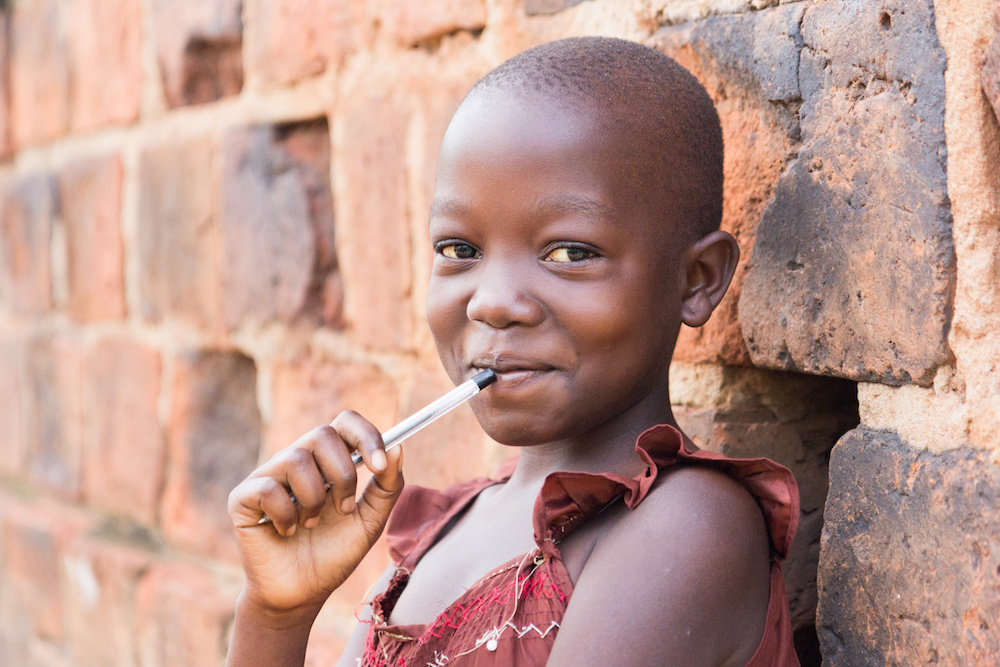Here’s How Companies Tangibly Support Refugee Education

Half of all 70.8 million forcibly displaced people in the world are children under the age of 18, according to a new report released yesterday from the United Nations High Commissioner for Refugees (UNHCR). More and more students are abruptly being forced to stop schooling, and many are unable to return to the classroom during their transition. However, education systems that host migrant and refugee children are finding new ways to accommodate the influx of students by partnering with the business community to leverage more educational resources. On World Refugee Day, we highlight some of the innovative partnerships in Uganda that are helping ensure all children in the country – native or new arrival – have access to quality education.
Uganda’s Leadership
Over the last few years, Uganda has earned the reputation of hosting more refugees than any other country in Africa and is one of the top host countries in the world. Receiving more than 1 million refugees in the last five years alone, Uganda welcomes displaced people and allows them to seek jobs, move freely within the country, cultivate land, access government-provided health care, and attend primary and secondary school.
Despite this openness, the steady stream of new students has begun to deplete resources. A shortage of funds and assets available for Uganda’s education system means that 57% of school-aged refugee children in the country are unable to attend school. This means that the majority of school-aged refugees, a third of all 1.24 million refugees in Uganda, are missing out on years of learning.
Student Influx
However, despite these odds, numbers from April 2019 bring hope. A total of 232,858 children attend primary education in the 11 refugee settlements throughout Uganda. Although continuation to secondary education remains low, there is still reason to be optimistic as local initiatives, international organizations, and businesses continue to contribute and expand efforts to make education accessible at both the primary and secondary levels. For example, Uganda’s Ministry of Education and Sports worked with the UN and civil society to develop a three-year Education Response Plan for Refugees and Host Communities, which includes building 3,000 classrooms and recruiting 9,000 teachers each year. Similarly, UNHCR’s 2019-2020 Planned Response report places particular emphasis on ensuring girls and students with special needs are enrolled in both primary and secondary education.
Businesses Support
Businesses are also playing a critical role in the global effort to bring essential learning resources into Uganda. Through GBC-Education’s REACT initiative, we connected our civil society partners at Education Cannot Wait with HP to deploy the HP School Cloud. This hardware delivers digital educational software from Learning Equality without online connectivity to laptops and tablets used in refugee learning spaces.
REACT also fostered a partnership between Avanti Communications and Uganda’s Social Innovation Academy (SINA) to deliver free high-speed internet connectivity for displaced students in Uganda. The partnership with Avanti allows SINA to deliver online self-learning curriculum to 50-70 scholars who visit SINA’s Mpigi campus, and the organization aims to soon expand this digital connectivity and curriculum to the Bidi Bidi – one of the world’s largest refugee settlements.
Contributions from businesses like HP and Avanti Communications are generating greater educational access and opportunity for children and youth affected by emergencies. Through the REACT initiative, GBC-Education will continue to mobilize the business community to support refugee learning.
Learn how your company can support students facing crisis and conflict. Our REACT initiative connects businesses with local systems and organizations delivering education to displaced children and young people.
